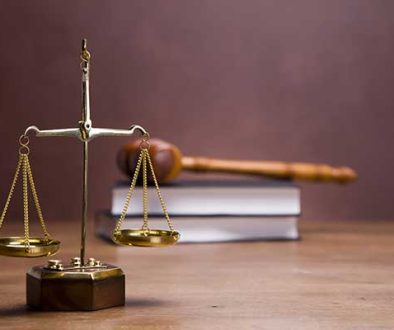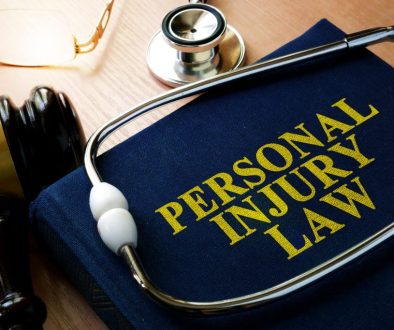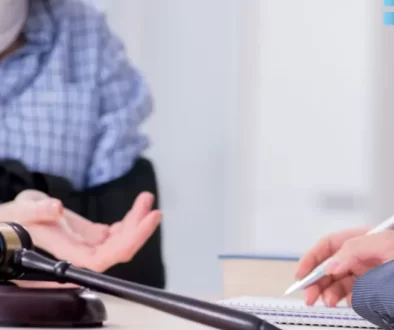Can I Represent Myself in a Criminal Case?
If you’ve been charged with a crime, one of the most important decisions you’ll need to make is how to proceed with your defense. In some situations, defendants may be tempted to represent themselves in a criminal case, often referred to as “pro se” representation. While the law technically allows you to defend yourself, the reality is much more complicated. In this blog post, we’ll explore the pros and cons of representing yourself in a criminal case, the risks involved, and why having a skilled criminal defense attorney may be your best option.
1. What Does “Representing Yourself” Mean?
Representing yourself in a criminal case means that you choose to handle all aspects of your defense, including legal filings, motions, negotiations, and court appearances, without the help of a lawyer. While the Constitution gives you the right to represent yourself under the Sixth Amendment (right to counsel), this decision is not one to take lightly.
In legal terminology, representing yourself is called “pro se,” which is Latin for “on one’s own behalf.” Even though the law gives you this right, courts and legal experts typically advise against it, especially in criminal cases, where the stakes are high.
2. Why Would Someone Choose to Represent Themselves?
There are a variety of reasons why someone might decide to represent themselves in a criminal case:
- Financial Concerns: One of the most common reasons people consider self-representation is the cost of hiring an attorney. Criminal defense lawyers can be expensive, and for those who cannot afford an attorney, representing themselves may seem like the only option.
- Desire to Be Involved: Some defendants feel that they will be better able to tell their side of the story and handle their case more personally if they represent themselves. They may not trust that an attorney will understand the details of their situation or might feel more comfortable being directly involved in their defense.
- Simple Cases: In some rare cases, defendants may feel their charges are minor or straightforward enough that they don’t need a lawyer. They may think the case will be easy to resolve, or they may hope to avoid trial altogether with a plea deal.
3. The Risks of Representing Yourself
Although you have the legal right to represent yourself, doing so in a criminal case is fraught with risks. Criminal law is highly complex, and even a seemingly minor mistake can have significant consequences. Here are some of the risks of representing yourself:
1. Lack of Legal Knowledge
Criminal defense requires a deep understanding of the law, criminal procedures, and court rules. Lawyers have years of education and experience to navigate the complexities of the legal system, including the ability to identify potential defenses and weaknesses in the prosecution’s case. Without this expertise, you may miss opportunities to challenge evidence, suppress illegally obtained material, or negotiate a favorable plea deal.
2. Inability to Object Effectively
One of the key responsibilities of a criminal defense lawyer is to object to evidence or statements that are inadmissible. In court, there are specific rules of procedure that must be followed, and without a lawyer, you may not know when to object or what to say when you do. This could lead to crucial mistakes in your defense strategy, and evidence that could be excluded might be admitted without challenge.
3. Risk of Self-Incrimination
A defendant representing themselves may inadvertently incriminate themselves during the trial. During questioning or cross-examination, a layperson may reveal more than intended, leading to harmful information being introduced into the case. Lawyers are trained to protect clients from making statements that could be used against them.
4. Difficulty Negotiating Plea Deals
Most criminal cases end in a plea bargain, not a trial. Skilled criminal defense attorneys have experience negotiating with prosecutors to secure favorable plea deals for their clients. Without a lawyer, you may have difficulty understanding the nuances of any plea offers and may end up accepting a deal that’s not in your best interest.
5. Emotional and Mental Stress
Criminal cases can be emotionally taxing. Facing serious charges and potential penalties—like jail time or fines—can cause immense stress and anxiety. Having an attorney to handle the legal complexities can help reduce that burden. Representing yourself may lead to additional stress as you try to navigate the intricacies of the case without adequate legal training.
6. Risk of a Harsh Sentence
The criminal justice system is designed for professionals who understand the intricacies of the law. If you represent yourself and lose your case, you might face harsher penalties, as the court may view you as less credible than an experienced lawyer, especially if your defense is inadequate. The outcome could result in a conviction that could affect your future for years to come.
4. When Is It Okay to Represent Yourself?
While representing yourself in a criminal case is generally discouraged, there are a few rare situations where it might be appropriate or feasible:
- Minor Misdemeanors: For less serious charges (such as traffic violations or minor offenses) that do not carry a high risk of jail time or a criminal record, a defendant may feel confident in representing themselves, particularly if the legal proceedings are relatively simple.
- When Legal Fees Are Unaffordable: If you truly cannot afford an attorney and your case is simple enough, the court may grant you permission to represent yourself. In this case, you would likely still be required to follow the same rules and procedures as an attorney. Some courts may also appoint a public defender if your case is eligible for public defense assistance.
5. The Right to Self-Representation
The U.S. Constitution guarantees the right to self-representation in criminal trials, but it’s important to note that the court must first determine that you are making an informed decision. If you choose to represent yourself, the judge will typically go through a process called a Faretta hearing (named after the U.S. Supreme Court case Faretta v. California). During this hearing, the judge will ensure that you understand the risks and disadvantages of self-representation and that you are capable of conducting your defense. The court may also provide some guidance, but it will not offer legal advice.
If the judge determines that you are not capable of adequately defending yourself, they can appoint a public defender or another attorney to represent you.
6. What Happens if You Decide to Hire a Lawyer Midway?
If you begin representing yourself but later decide you need professional help, you may be able to hire a lawyer at any point during the case. However, if the trial has already started, it may be difficult to switch attorneys, especially if the case is far along. If you decide to hire an attorney after self-representation, the court will likely grant you a continuance (postponement) to give the lawyer time to prepare.
7. Conclusion: The Smart Choice Is to Hire a Lawyer
While it may be tempting to represent yourself in a criminal case, the risks typically outweigh the potential benefits. Criminal cases can have serious, life-altering consequences, including jail time, fines, or a permanent criminal record. Without a trained legal professional by your side, you may miss crucial opportunities to protect your rights and defend your case effectively.
An experienced criminal defense attorney can help you navigate the complexities of the criminal justice system, identify the best defense strategies, negotiate plea deals, and provide support throughout the entire process. If you’re facing criminal charges, investing in professional legal representation is one of the most important decisions you can make to ensure the best possible outcome.
Remember: criminal defense attorneys are dedicated to protecting your rights and advocating for your interests. Don’t take chances with your future—let a professional handle the intricacies of your case, while you focus on your well-being and future.
Need legal help? In California, navigating legal challenges, whether they involve personal injury, workers’ compensation, criminal defense or civil litigation, can be overwhelming. Expert Attorney Help is here to provide the critical legal support you need. As a leading advocate for individuals facing legal battles, our experienced attorneys understand the complexities of the legal system and are committed to fighting for your best interests. With personalized legal strategies and compassionate support, we are dedicated to achieving the justice and compensation you deserve.
CONTACT US FOR HELP. Call us at (888) 354-6879 or fill out the form on our Contact page.




